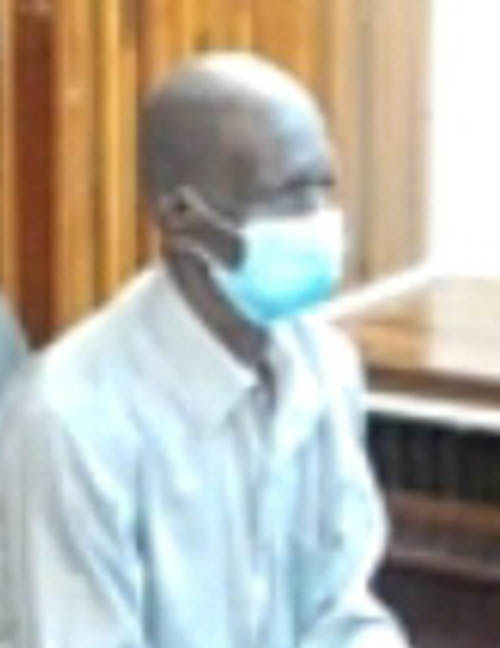Finding a 2015 verdict of the jury to have been supported by evidence, the Guyana Court of Appeal yesterday affirmed the conviction of septuagenarian Kenrick Morrison, for sexually assaulting a child back in 2013.
Having so found, the appellant who had been granted bail in 2017 pending his appeal was made to immediately surrender to police at the Court of Appeal where he attended the hearing physically, to complete his seven-year sentence.
He has just about 5 years remaining to now complete behind bars.
Morrison had appealed his conviction on a number of grounds arguing among other things that the jury’s verdict was unreasonable and could not be supported by evidence presented at trial.
Delivering the ruling of the court, however, acting Chancellor Yonette Cummings-Edwards noted that it was a question of fact to be determined by the jury whether the evidence of the virtual complainant reached the beyond-reasonable-doubt threshold.
On this point the chancellor said that the court having so found, went beyond to ascertain whether the trial judge had equipped the jury with full and adequate directions on how to treat with the evidence as a whole.
Chancellor Cummings-Edwards said the record of appeal reflected that the trial judge, as required to do, had told the jury that as the judges of fact, it was their role to properly scrutinize the evidence of not only the then-accused but the complainant as well.
She said the judge had also provided guidance by warning the jury that the prosecution needed to prove its case to them beyond reasonable doubt and that they needed to determine if as a matter of fact, they were satisfied that the complainant was being truthful; as well as all the other witnesses and the accused himself.
The chancellor said that importantly also, as fairness requires, the trial judge had also fully put the case of the defence—that he did not commit the offence—to the jury for its consideration.
Against this background, the appellate court noted that contrary to Morrison’s contentions, the guilty verdict against him was supported by the evidence and therefore could not be regarded as having been unreasonable.
Another ground on which Morrison based his appeal was that the trial judge did not deal with inconsistencies in the evidence of the complainant and her mother in the Magistrate’s Court and the High Court.
But like he did on all other grounds, the appellant failed on this one as well.
On this ground of appeal, the Chancellor said that inconsistencies and omissions affect the credibility of a witness. She said that while there were inconsistencies, however, this does not alone, altogether nullify a case, while pointing out that the trial judge did adequately guide the jury on how it ought to have dealt with the inconsistencies.
She said that equipped with the necessary guidance, the jury would have been able to embark upon its fact-finding mission of what it saw the outcome of the case needed to be—having been satisfied beyond reasonable doubt.
Likewise, the court said it did not find as complained of by the appellant, that the trial judge misdirected the jury on issues of fact.
The Chancellor said that not only was this ground not made out, but noted that the trial judge did direct the jury on what the facts were; while adding that in any event the jury itself would have heard what those facts were and would have been able to make its own assessment thereof as judges of the facts.
Having found no prejudice or miscarriage of justice meted out to the appellant in anyway to have rendered his conviction fatal, the appellate court dismissed his appeal and affirmed his conviction and sentence while recommitting him to prison to complete his sentence—having been previously granted bail as his appeal pended.
The appeal was heard by the Chancellor and justices of appeal Dawn Gregory and Rishi Persaud.
Morrison was represented by attorney Mark Conway, while the state was represented by Prosecutor Mercedes Glasford.
Morrison had been unanimously convicted by a 12-member jury of the February 12th, 2013 charge of engaging in sexual activity with a child under the age of 16, by kissing her; and rubbing her shoulders, breasts and genitals.
Trial judge Justice Jo-Ann Barlow had imposed the seven-year sentence and had upbraided the convict for the position of trust he had breached in committing the crime.





